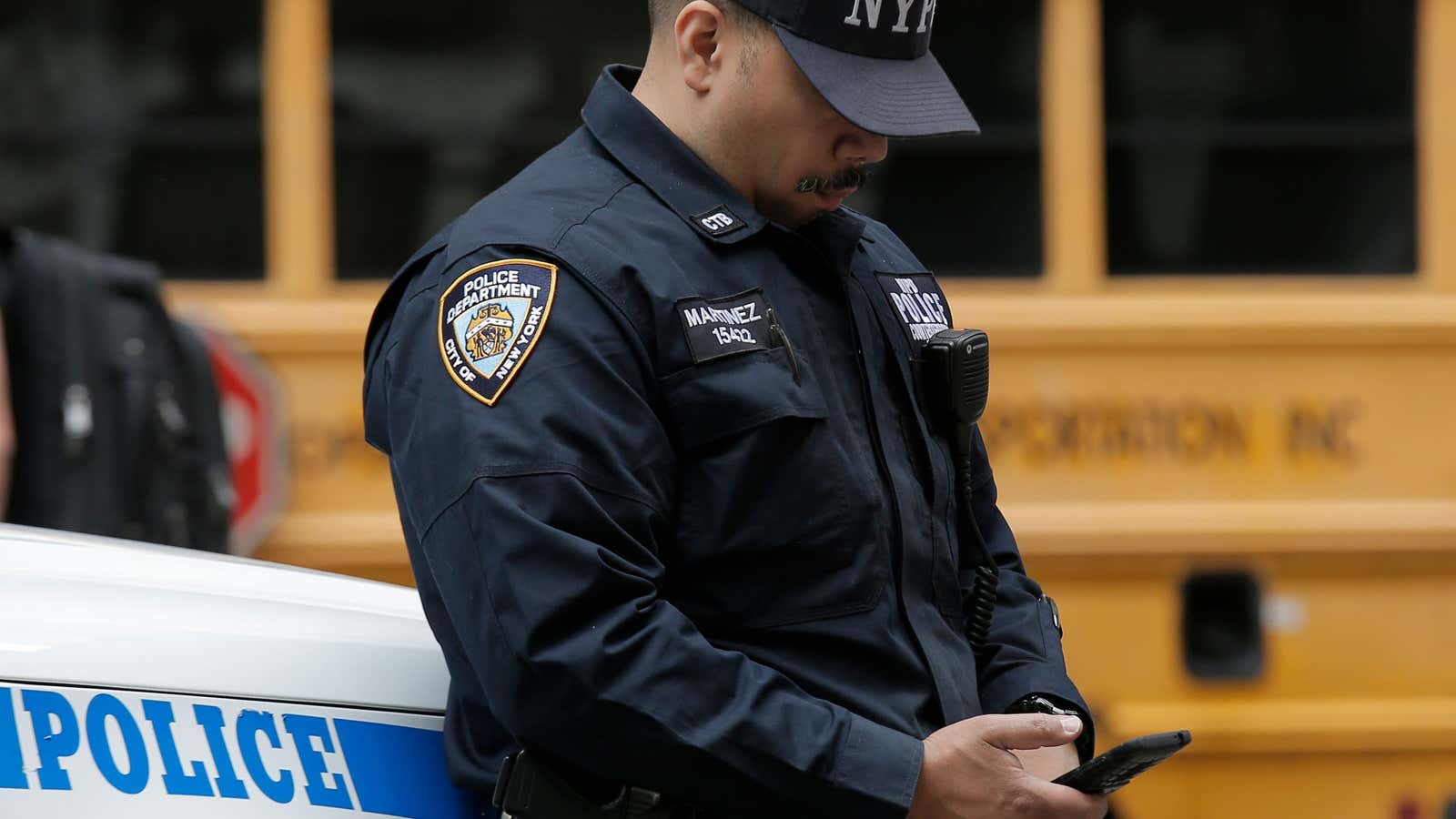Law enforcement agencies use Facebook as a way to communicate with the communities they police. They post important public service announcements, and get useful tips from citizens. But they are imploring people: don’t use Facebook Messenger to contact them in emergency situations.
Multiple police departments across the US, according to Facebook posts found by Quartz, have this year posted announcements asking their communities to refrain from messaging or calling them on Messenger when they should be calling 9-1-1, the national number for emergency services. One department, in Huber Heights, Ohio, even disabled Messenger on its page completely.
“We had people reporting in-progress crimes, and our Messenger is not monitored 24/7,” Dave Garlow, the public information officer for the department, said. These reports were frequent enough that it was becoming a problem. Two people check the department’s Facebook page roughly 8am to 4pm—but even then, they might be busy with other responsibilities, he added.
Chief Dusty Luking of the police department in Vincennes, Indiana, has administrator privileges for his department’s Facebook page, and he was logged in on his phone on Oct. 22. At one point during the day, he said, he felt that “Messenger started buzzing.” It was an elderly woman in a nearby town, across the state border with Illinois. She said she thought she was having a heart attack and called the Vincennes police department through Messenger. It’s unclear where she was calling from, but she said she didn’t have access to a phone. She could’ve been calling from a netbook or computer attached to wifi, the chief said. Some people can’t afford cellular service, he added, and it’s easier for them to get access to free internet (like at a library or through free city wifi programs).
You can call 9-1-1 even if you don’t have service on your phone, but, “not a lot of people know that,” Luking added.
Luking was able to assist the woman by contacting the appropriate agency, but that might not always be the case. “It’s not a site that is monitored by our dispatch where you can send a message that you’re being robbed,” he said, and posted on the department’s Facebook’s page to remind the community where to call.
At the same time, Messenger serves as an important source of tips for his department. Citizens message with information on suspected drug activity under specific addresses, for example. Once, Luking said, a group of concerned mothers reached out to the department through Messenger about a suspicious person hanging around in a local park.
“It’s a great community policing tool,” he said, and it functions like a “neighborhood watch,” adding that he’d “hate to discontinue it.” Facebook is becoming increasingly important in communication between law enforcement, emergency response agencies, local governments, and their constituents. It’s a public service announcement board, a tip line, and a public relations tool all rolled into one. With so many Americans on Facebook, it’s an effective way to get people’s attention. That being said: Facebook can also be used in more nefarious ways, as an instrument of censorship and surveillance by the cops themselves.
